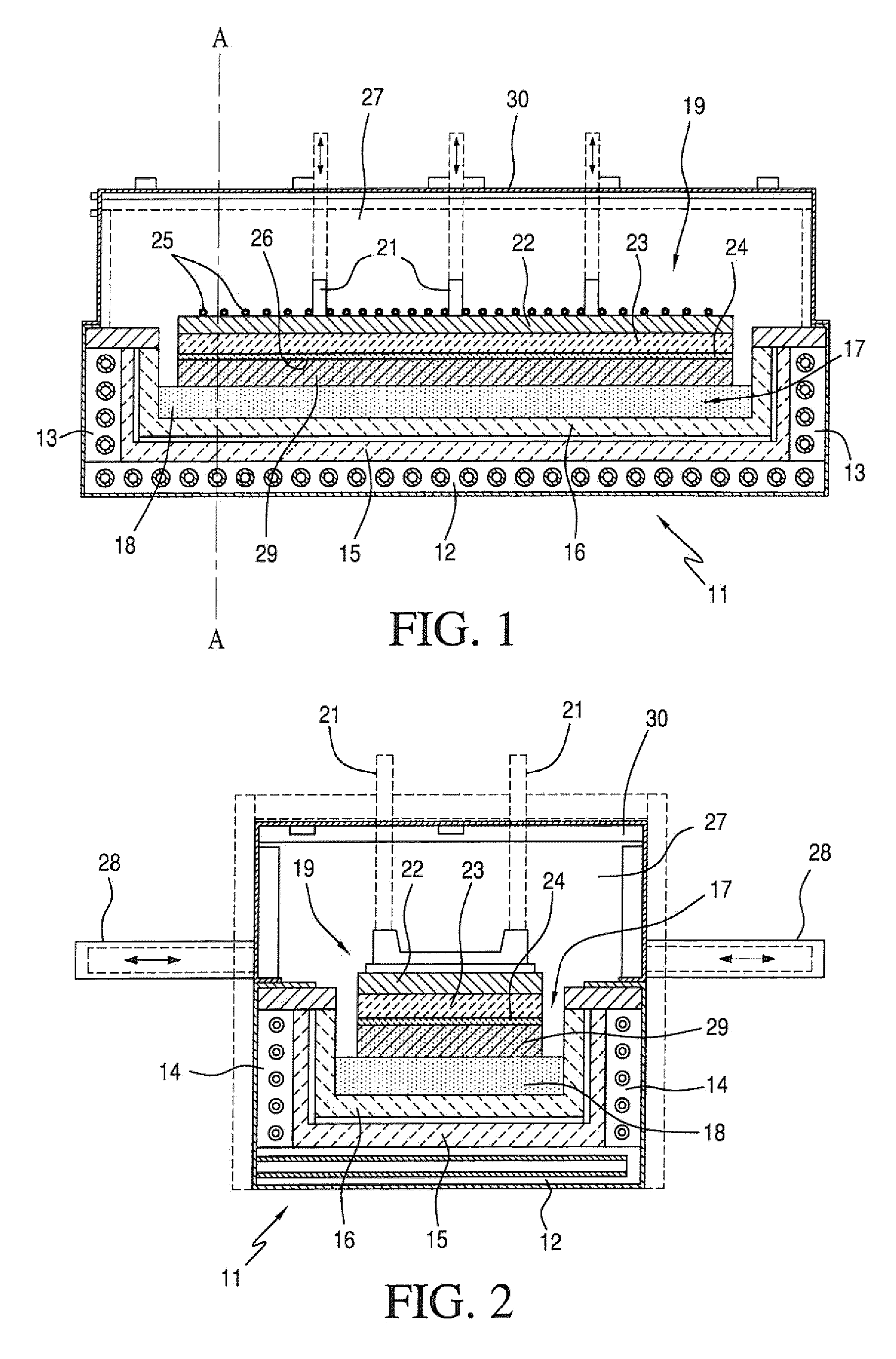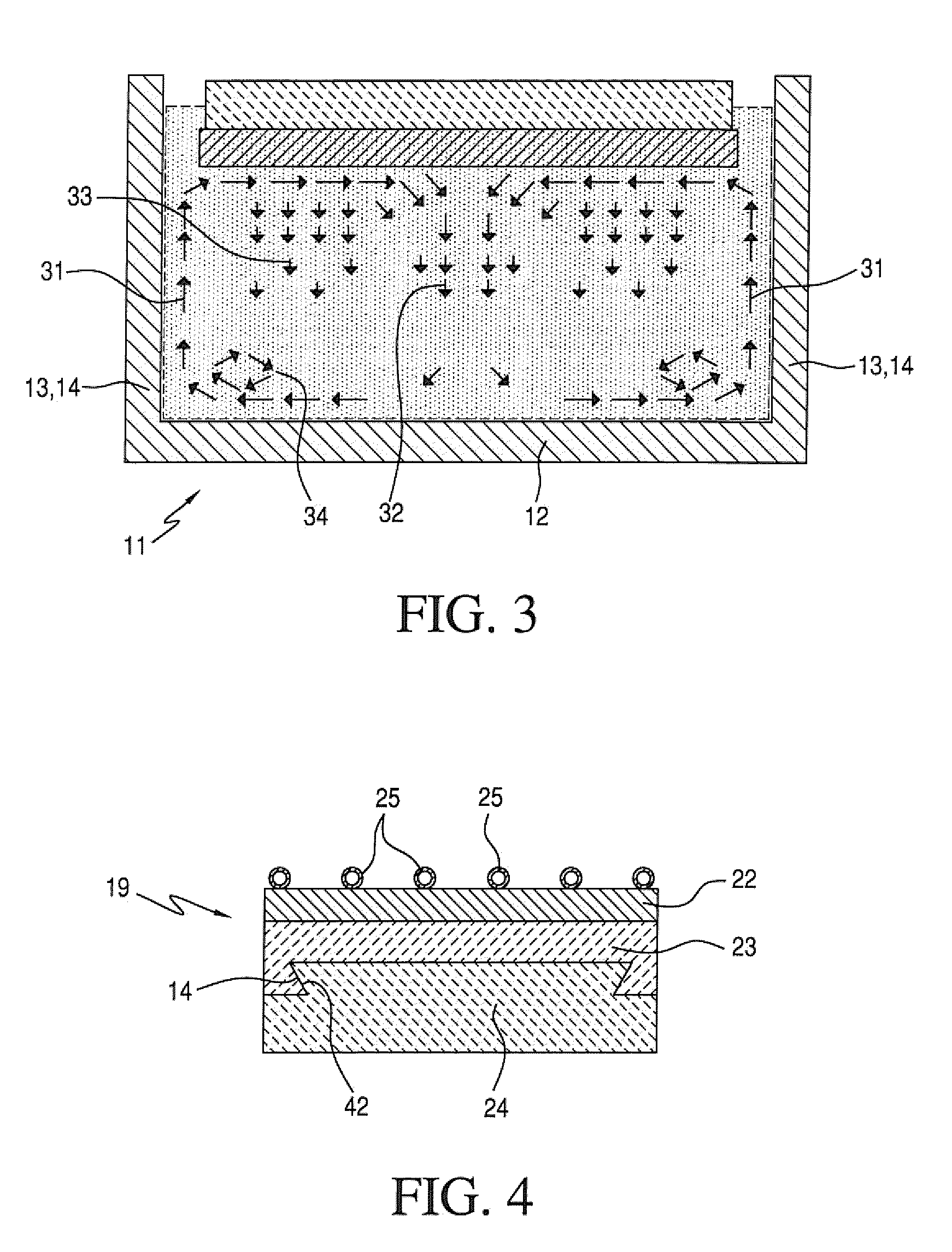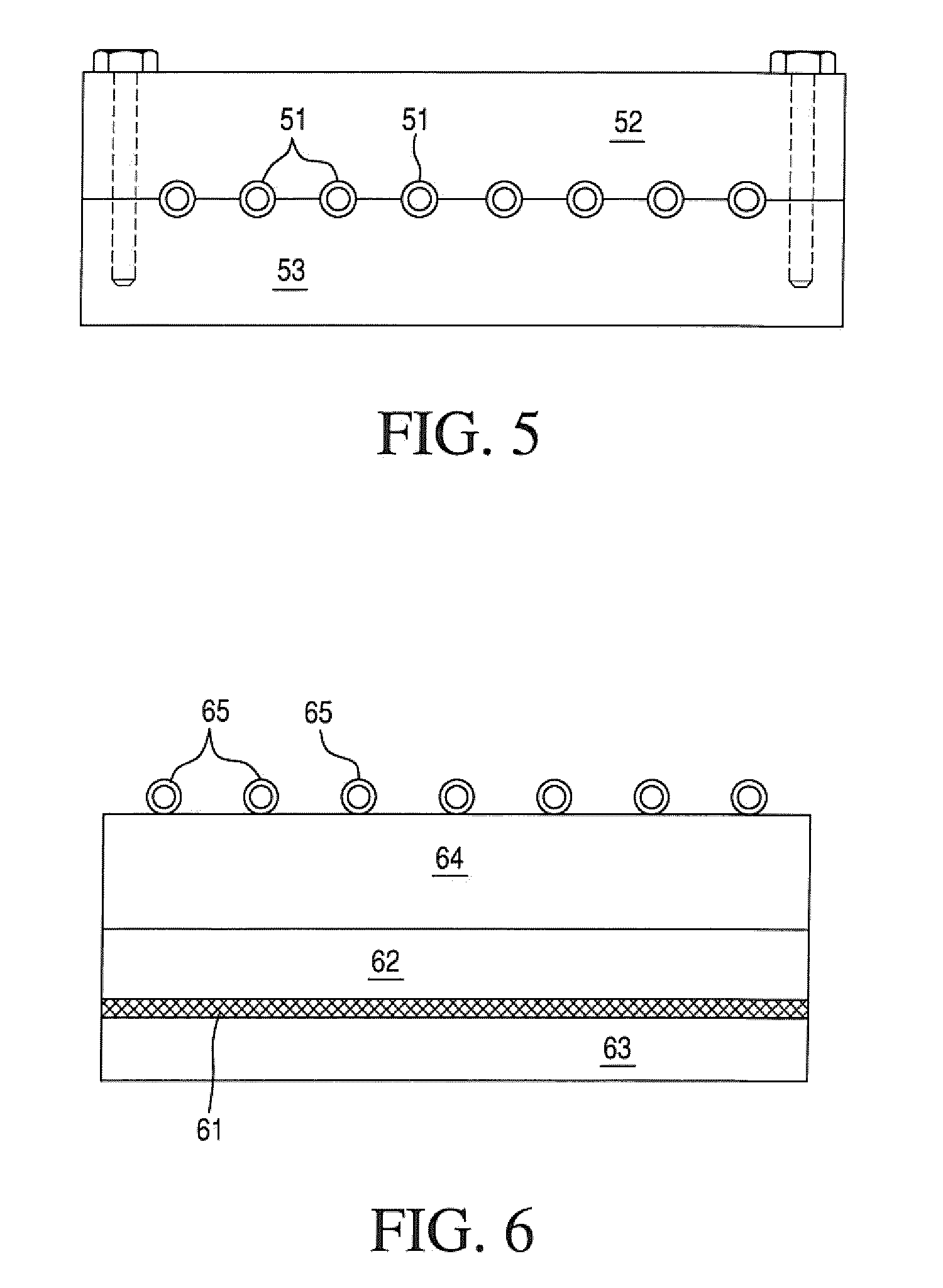Method and apparatus for refining a molten material
a technology of molten materials and refining methods, applied in the field of refining or purifying materials, can solve the problem that the crucible can only be used on
- Summary
- Abstract
- Description
- Claims
- Application Information
AI Technical Summary
Benefits of technology
Problems solved by technology
Method used
Image
Examples
Embodiment Construction
[0008]According to one aspect of the invention, there is provided a method of refining a material which comprises the steps of: forming a melt of the material in a vessel; bringing a cooled surface into contact with the surface of the melt, allowing the molten material to solidify and adhere to the cooled surface; and progressively solidifying the molten material downwards to form a solid ingot of the material adhering to the cooled surface.
[0009]Although defined as a method of refining, the invention could also be considered to be a method of directional solidification.
[0010]Thus, the invention provides a streamlined production process in which the furnace vessel is heated and the ingot cast, but there is no ingot contact within the vessel and so the ingot can be removed and the vessel refilled. The vessel does not need to be cooled between ingot castings.
[0011]Preferably, the walls and bottom of the vessel are heated. Preferably, the melt is maintained in an inert or controlled at...
PUM
| Property | Measurement | Unit |
|---|---|---|
| melt | aaaaa | aaaaa |
| temperature | aaaaa | aaaaa |
| resistivity | aaaaa | aaaaa |
Abstract
Description
Claims
Application Information
 Login to View More
Login to View More - R&D
- Intellectual Property
- Life Sciences
- Materials
- Tech Scout
- Unparalleled Data Quality
- Higher Quality Content
- 60% Fewer Hallucinations
Browse by: Latest US Patents, China's latest patents, Technical Efficacy Thesaurus, Application Domain, Technology Topic, Popular Technical Reports.
© 2025 PatSnap. All rights reserved.Legal|Privacy policy|Modern Slavery Act Transparency Statement|Sitemap|About US| Contact US: help@patsnap.com



